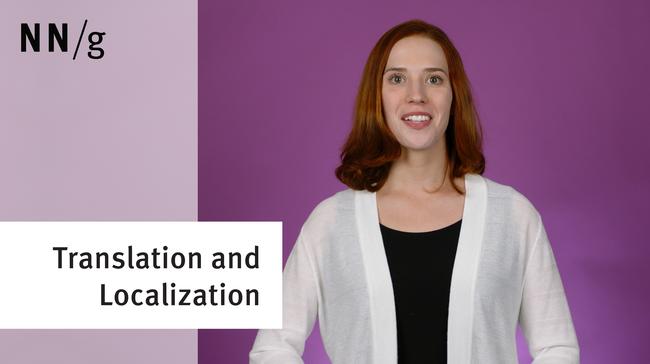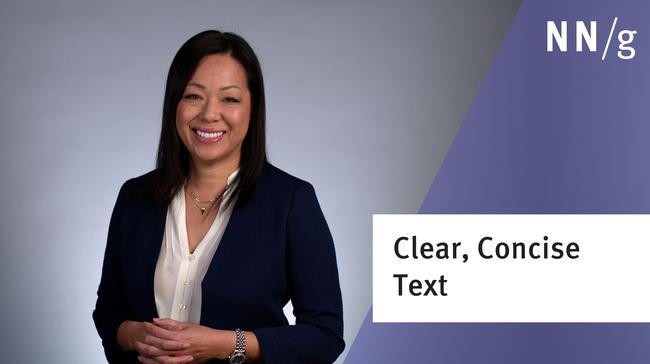"Speak the user's language" has been a primary usability guideline for more than 20 years. The fact that the Web is a linguistic environment further increases the importance of using the right vocabulary.
In addition, as my new book documents, Web users are growing ever-more search dominant. Search is how people discover new websites and find individual pages within websites and intranets. Unless you're listed on the first search engine results page (SERP), you might as well not exist. So, the first duty of writing for the Web is to write to be found.
There are many elements to search engine optimization, but SEO guideline #1 is our old friend, "speak the user's language." Or, more precisely, when you write, use keywords that match users' search queries.
Winston Churchill said that "short words are best and the old words when short are best of all." Churchill was talking about how to write punchy prose, not about SEO. To be found, precise words are often better than short words, which can be too broad to accurately describe the user's problem. For example, people are more likely to search for "usability" than for "easy" -- at least those people who are in the market for my research reports and seminars.
But Churchill was right that old words are best.
Old words rule because people know them intimately. Familiar words spring to mind unbidden. Thus, users are likely to employ old words when they boil down their problem to a search query, which is typically only 2-3 words long.
How New Words Ruin Your Search Rankings
Many forces pressure Web writers to diminish a website's value by filling it with words that are unlikely to appear in search queries. Here are some guidelines for writing to ensure that users will find your site:
- Supplement made-up words with known words. It's tempting to coin new terms because you can own the positioning if the term catches on. But, more likely, people will continue to use their old terminology. It's long been a usability guideline to avoid made-up words in navigation menus, because users scan them for words they know. In full-text content, you can include new words for effect, but make sure to supplement them with legacy words -- that is, words that your customers know and use in everyday business practice.
- Play down marketese and internal vocabulary. Call a spade a spade, not a digging implement. Certainly not an excavation solution. Many marketers like to embellish products to make them seem grander than traditional fare. But customers define their needs in known terms, so be sure to use them, even if you don't think they're exciting. The very fact that a word is unexciting indicates that it's frequently used. People search for terms like "cheap airline tickets," not "value-priced travel experience." Often, a boring keyword is a known keyword.
- Supplement brand names with generic terms. If people know and already like your brand enough to search for it, wonderful: you're halfway home. This is particularly true if you're a B2B site, where a main goal is to simply survive the sales funnel's initial discovery and research stages and make it to the shortlist. You should of course include your brand name when describing your products so that fans can find you. But don't abandon the other 95% of prospects who are searching for their problem and don't know the name of your solution. In the funnel's early stages, people tend to use non-branded search terms, because they haven't yet decided which companies to put on the shortlist. This is exactly the time when you have the potential to influence them.
- Avoid "politically correct" terminology. When writing about accessibility, for example, talk about blind users or low-vision users, not visually challenged users. First, nobody searches for a made-up phrase like "visually challenged." Second, "blind" and "low-vision" are more precise: they refer to two separate groups of people. Each group uses different assistive technologies and has a different experience of your website. They therefore have distinct usability needs.
If you fill your pages with fancy new words, you'll lose the most powerful tool in Internet marketing: the ability for users to find you in search. Making the search listings is a crucial first step, but it's not the only step: users must also click your entry, and your site must have a good conversion rate.
We know from eyetracking studies that users often scan right past high-ranking listings when the headlines don't make sense. And we know from hundreds of usability studies that users abandon websites with product pages that are confusing or fail to answer their questions. These two problems definitely also deserve the attention of your writers and your usability studies.
There's more to website success than simply being found, but it is the first step. Use old words and you'll be that step ahead of the competition and their useless new words.





Share this article: